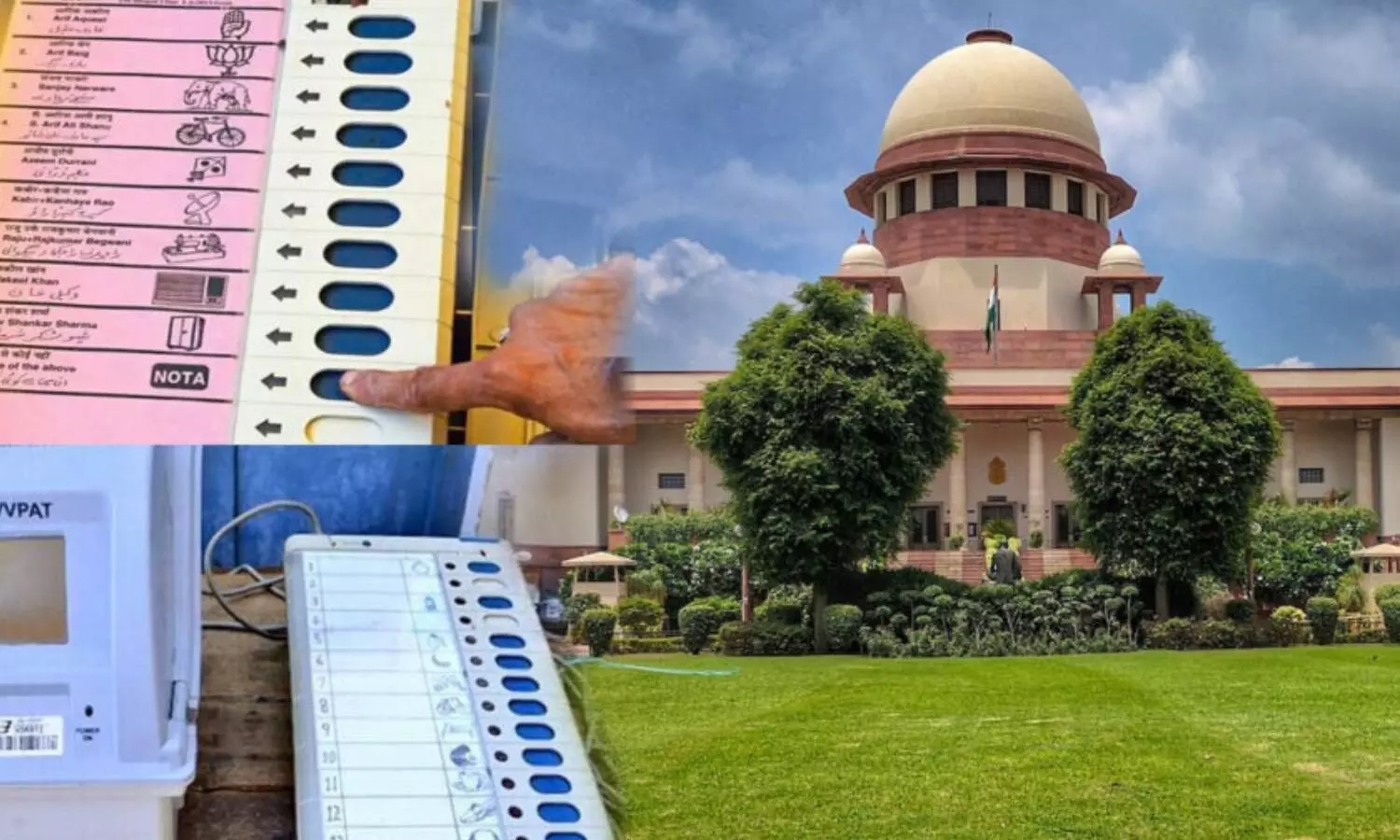Supreme Court requests EC's input for full counting of VVPAT paper slip
VVPAT is an independent system allowing voters to check if their votes were recorded accurately
image for illustrative purpose

Supreme Court's request to Election Commission on VVPAT paper slips counting is a significant move towards ensuring transparency and fairness in the electoral process. Currently, only five randomly chosen Electronic Voting Machines (EVMs) undergo verification using VVPAT paper slips.
VVPAT, or the Voter Verifiable Paper Audit Trail, is an independent system allowing voters to check if their votes were recorded accurately. It generates a paper slip that voters can view, kept sealed for potential disputes.
Previously, on April 8, 2019, the Supreme Court directed the Election Commission to increase the number of EVMs undergoing VVPAT verification from one to five per assembly segment in a parliamentary constituency.
Justices BR Gavai and Sandeep Mehta acknowledged plea for full VVPAT paper slip counting in elections from activist Arun Kumar Agrawal's lawyers, rather than just the current random sample of five EVMs. Notices were issued to the Election Commission and the central government, with a potential hearing scheduled for May 17.
The plea contested the Election Commission's guideline mandating full VVPAT paper slip counting verification, proposing simultaneous verification to expedite the process. Despite the significant investment of nearly ₹5,000 crore in purchasing nearly 24 lakh VVPATs, only about 20,000 VVPAT slips are presently verified.
Concerns raised by experts regarding VVPATs and EVMs, along with past discrepancies between EVM and VVPAT vote counts, highlight the plea's importance for a comprehensive VVPAT slip count. This ensures voters can confirm that their ballots are accurately recorded, potentially by allowing them to deposit their VVPAT slips in the ballot box. The Supreme Court's notice on this matter is now part of the pending cases related to the issue.

